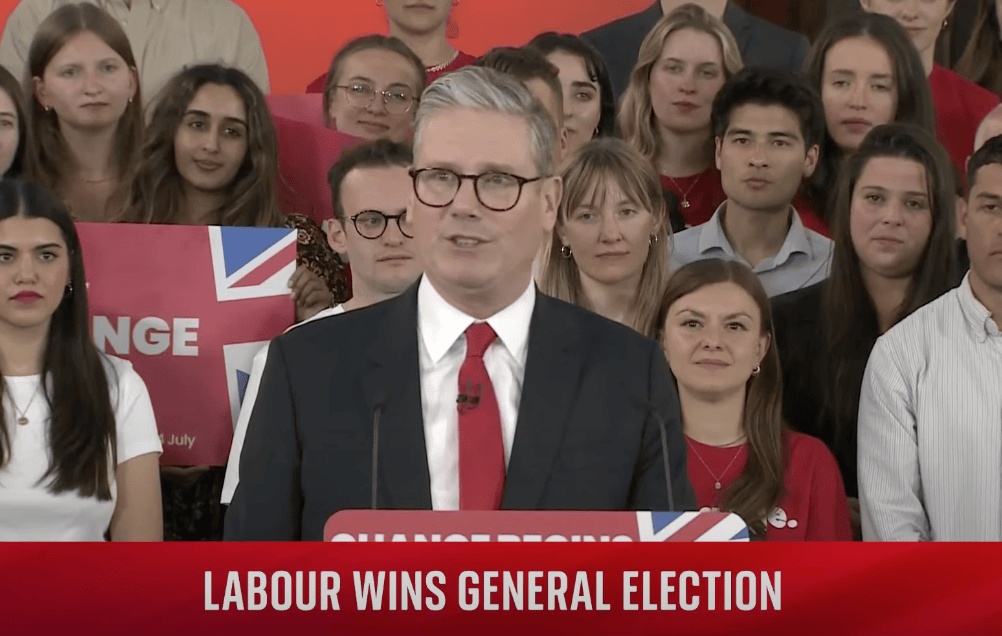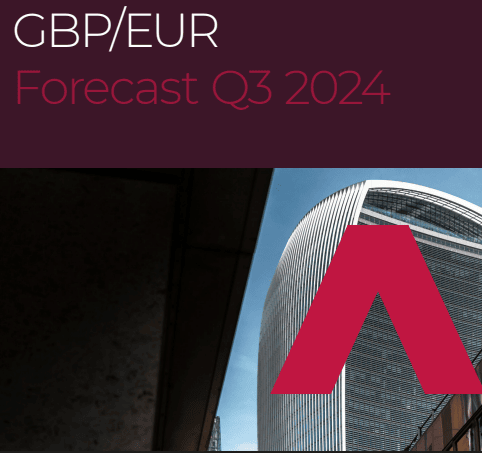
Pound Sterling has been unfazed by the Labour Party's massive election win overnight, and analysts say they remain constructive about the currency's outlook.
The Pound to Euro exchange rate is stuck at 1.18, with the reaction to the 10 PM exit poll confirming this is something of a non-event given the result is in line with expectations forged by consistent polling results.
"In FX, sterling remained firm following the UK general election, in which the Labour Party obtained the large majority that polls anticipated, as GBP-USD and EUR-GBP are still trading close to 1.28 and below 0.85, respectively," says Roberto Mialich, FX Strategist at UniCredit.
At the time of writing, Labour has 409 (+213) of 641 seats, the Conservatives 199 (-249), Liberal Democrats 71 (+60), SNP 8 (-36) and Reform 4.
Foreign exchange analysts maintain a broadly constructive tone with regard to the Pound's outlook, anticipating further gains amidst an improving economy and the prospect of closer trade relations with the EU under a Labour government.
Analysts at Barclays say Labour’s declared openness to a closer EU relationship "suggest scope towards a closer relationship and a further modest – but non-negligible – Brexit premium unwind."
"Our new forecasts envisage sizeable gains for the pound versus the euro, with EURGBP reaching 0.80 in the coming quarters. French political risk is an additional tailwind for the pound as we explain below," says Barclays in a recent currency note.
EUR/GBP at 0.80 = GBP/EUR at 1.25.
Near-term, the focus will be on Labour's initial steps.
"From here, what will be important to GBP and other UK markets are which parts of its electoral platform Labour intends to keep, and their economic impact. The incoming government’s policy agenda will be outlined in the King’s speech to Parliament on 17 July," says Joseph Capurso, FX strategist at Commonwealth Bank.
Turning to the coming days, the more important election for Pound-Euro is proving to be that in France, where the outcome of Sunday's second-round vote will cement an uncertain political and fiscal outlook.
The consensus is that no party will hold a majority in the National Assembly, resulting in a 'hung parliament'.
"We do not know really how this would work," says a new research note from French banking giant Crédit Agricole ahead of the second-round vote.
This assessment neatly encapsulates the uncertainty facing markets posed by France. And recall, FX markets dislike uncertainty.
"Given the market reaction to the results of the first round, a hung-parliament scenario is considered more positive than a scenario in which the RN obtains an outright majority. However, even in case there is a positive knee-jerk reaction, we expect such an outcome to ultimately weigh on the single currency," says Mialich.

